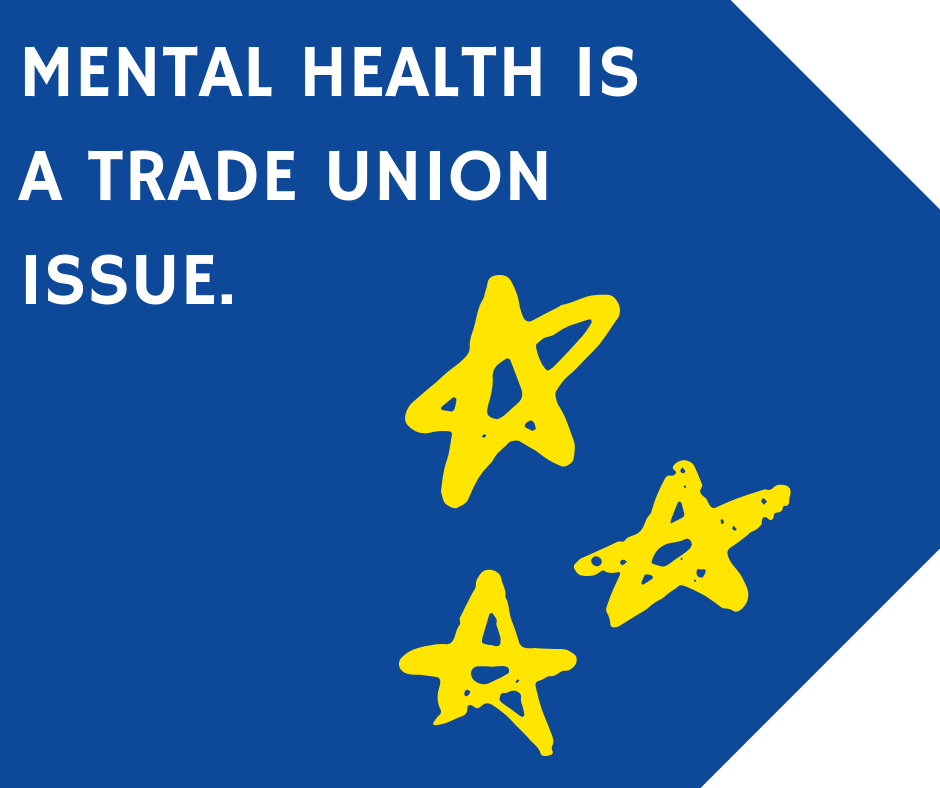World Mental Health Day: Teachers’ wellbeing matters
Published:
Mental health is a trade union issue. Workers across Europe face mental health difficulties as a result of work-related stress, harassment, bullying or violence.
The education sector demands intense social, intellectual and emotional engagement, and workers are often under excessive pressure. Only a systematic approach can prevent psychosocial hazards in the workplace, to protect against work-related stress and its potentially devastating consequences.
10 October is World Mental Health Day, led by the World Health Organisation. The theme this year is suicide prevention, and we reflect on the lives lost to mental illness.
Education workers face a complex range of psychosocial hazards in the working environment, and these risks are the biggest cause of teacher burnout. These psychosocial hazards in the education sector take many forms: work and/or role overload; lack of support from education institutions; poor student behaviour; physical or mental exhaustion; pressure for examination results. The consequences can be devastating and even include tragedies such as suicide. ETUCE fully recognises the importance of mental health today and every day.
- Education Support Partnership, a charity that offers mental health support to anyone working in education in England and Wales, states that from 2017 to 2018 the number of teachers calling its confidential helpline rose by 35%, to 8668 cases.
- In Turkey in 2013, issue of professional stress and mental health were reported by 62.9% of education workers, with 30.7% suffering from worries and insomnia and 38.3% from a social functioning disorder.
- In Croatia just over 20% of teachers and other educational workers feel exhausted on a weekly basis. 25.7% feel emotionally exhausted during most of their working hours.
- In the Netherlands 12% of qualified education workers left the sector altogether within three years of graduation.
- In Sweden a survey by the National Agency for Education reveals that one in four teachers have seriously considered changing profession and/or workplace.
The impact is felt not just by individual teachers, but also by their schools and students. Education workers are leaving or planning to leave the sector at an alarming rate. To deal with the risk of mental health issues and burnout for teachers and education workers, education institutions must take whatever actions are necessary to support their workers and establish a safe and decent working environment.
ETUCE and its member organisations are determined to promote a systemic approach to preventing of work-related stress – and all other threats to education workers’ mental and physical wellbeing. In cooperation with the European Federation of Education Employers (EFEE) we have created Online Interactive Risk Assessment (OiRA) tools. These tools allow education institutions to evaluate risk prevention measures in the workplace, review compliance with European legislation, and develop a detailed action plan to improve.
ETUCE Director, Susan Flocken commented: “Today, on World Mental Health Day, ETUCE recalls that mental health in the workplace is a vital issue for us all, including trade unions. The education sector is an especially challenging environment, where dedicated professionals work under great pressure. We must lift the taboo around stress, burnout and mental illness. Work-related stress causes long-term suffering and human tragedies, but these could often be averted with sufficient investment in protection for workers’ wellbeing. Thorough risk assessment and subsequent action to tackle psychosocial risks must be at the forefront of these measures. ETUCE advocates for all education institutions to implement robust risk prevention systems. Now we have developed Online Interactive Risk Assessment Tools to help them comply with EU legislation on occupational hazards, which include the psychosocial risks that can provoke mental health problems. By prioritising the wellbeing of education workers, we can make careers in teaching as happy as they are rewarding.”
- For more information on World Mental Health Day, click here.
- To access our OiRA Tool for Early Childhood Education and Care, click here.
- To access our OiRA Tool for Secondary Education, click here.